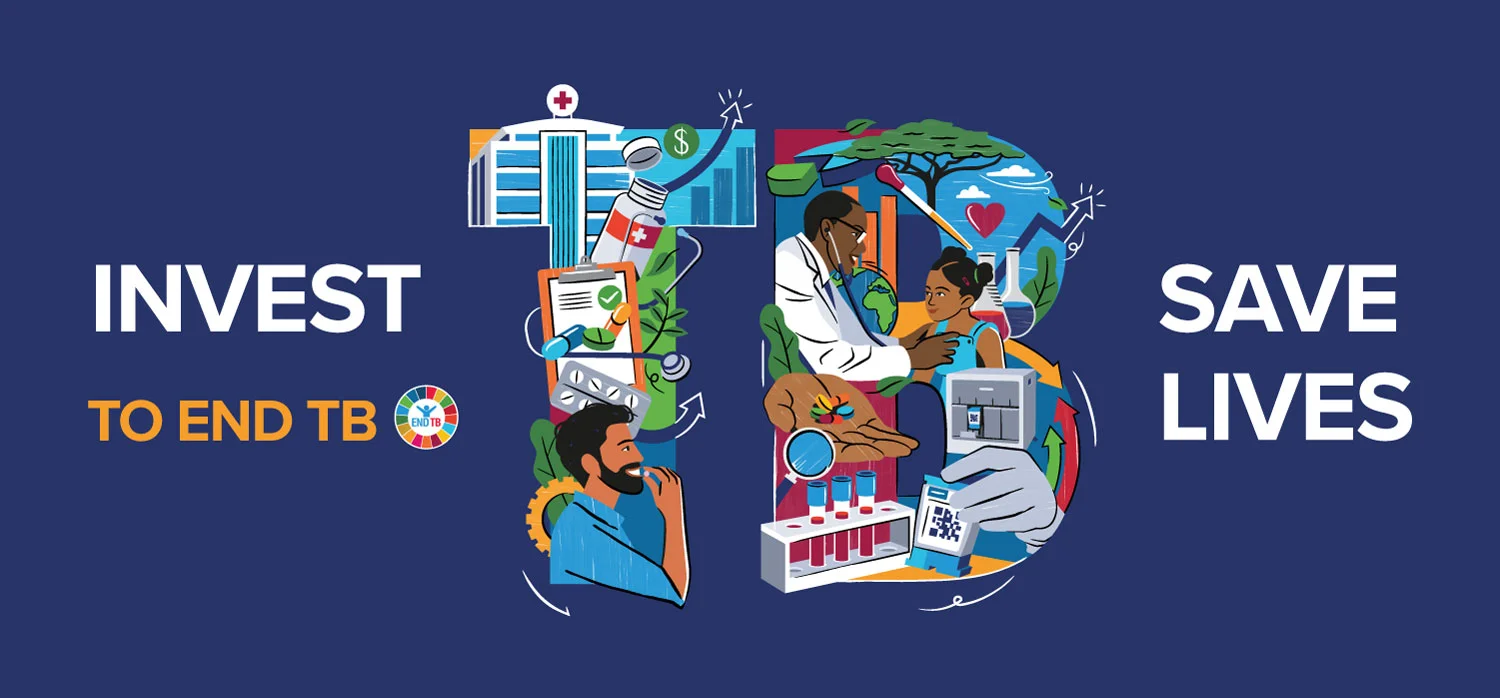World TB Day is observed on March 24 each year to raise public awareness and understanding about one of the world’s deadliest infectious killers – TB and it’s devastating health, social and economic impact on people around the world. March 24 marks the day in 1882 when Dr Robert Koch announced that he had discovered the bacterium that causes TB, which opened the way towards diagnosing and curing this disease. Commemorating this discovery in 1882, the day is observed worldwide.
The theme for this year’s World Tuberculosis Day is “Invest to End TB. Save Lives.”
According to the World Health Organisation, WHO, every day, over 4100 people die from TB and nearly 30 000 people fall ill with TB disease – despite it being preventable and treatable. TB is the leading cause of death of people with HIV and a major contributor to antimicrobial resistance. World TB Day is an opportunity to focus on the people affected by this disease and to call for accelerated action to end TB suffering and deaths, especially in the midst of the ongoing COVID-19 crisis.
Tuberculosis can be detected via certain symptoms, though symptoms are usually not visible in the latent stage. These symptoms include:
1. Persistent coughing that lasts for at least 3 weeks is the major symptom of Tuberculosis.
2. Production of phlegm along with blood during coughing is another major symptom that you should look out for.
3. Chills, fever, loss of appetite and loss of weight are other symptoms.
4. Night sweats and chest pain are also part of the disease.
Experts say TB can also cause abdominal pain, joint pain, seizures and persistent headache.
Treatment
Tuberculosis can be treated when detected early. The strain of TB is also important when treating the disease. Treatment for latent TB involves taking antibiotics. In the case of active TB, the affected ones may be recommended to take several drugs for duration of almost nine months. However, the treatment becomes more complicated for patients with the drug-resistant strain of TB.
WHO Regional Director for Africa, Dr Matshidiso Moeti is urging all stakeholders to advocate for increased investment, and to ensure that TB services are integrated into the primary health care response. We must all also work more closely with our communities, leveraging their expert local knowledge to tailor response efforts for maximum impact.
“I appeal to donors, the private sector, civil society and academia to pay increased attention to urgently boosting investment in the fight against TB and in TB research, in order to accelerate technological breakthroughs and uptake of innovations towards ending TB by 2030”.
More investment will save millions more lives, accelerating the end of the TB epidemic.
Note: This publication is purely for informational purposes only. It is not intended to be a substitute for professional medical advice. If you wish to seek clarification on the above matters please don’t hesitate to get in touch with health professional.


